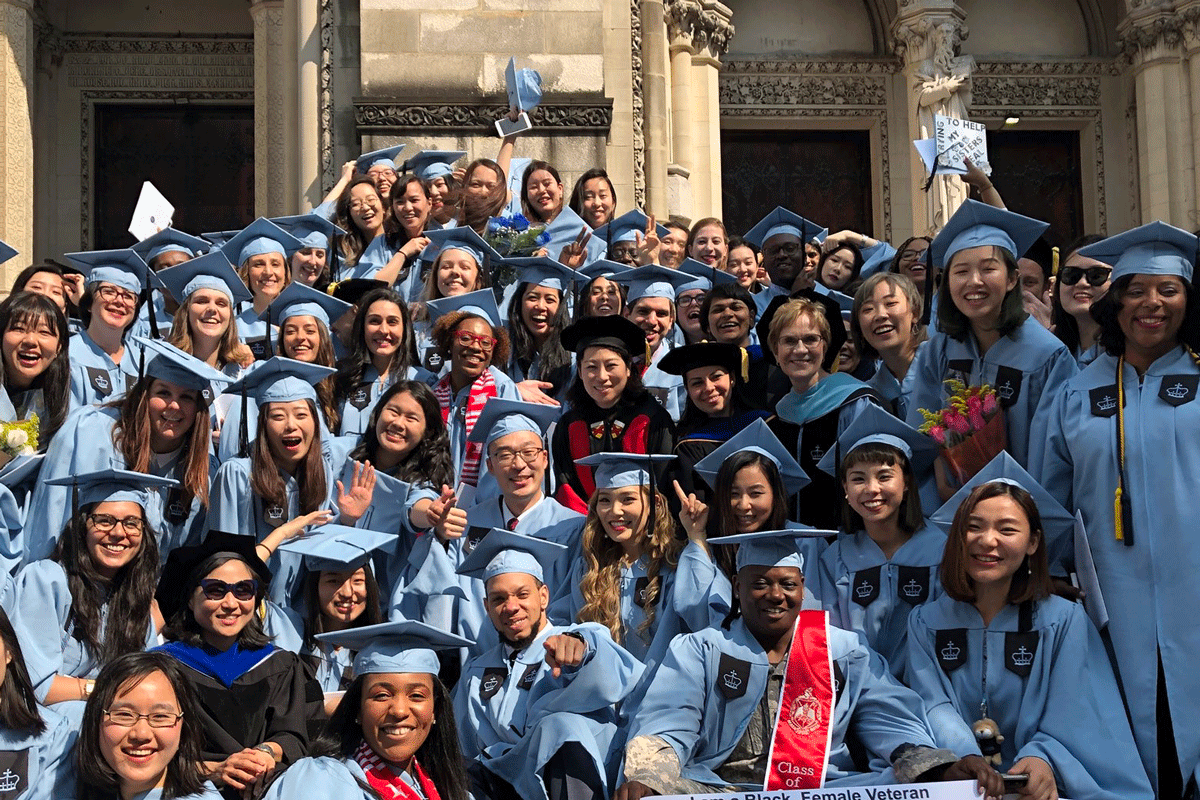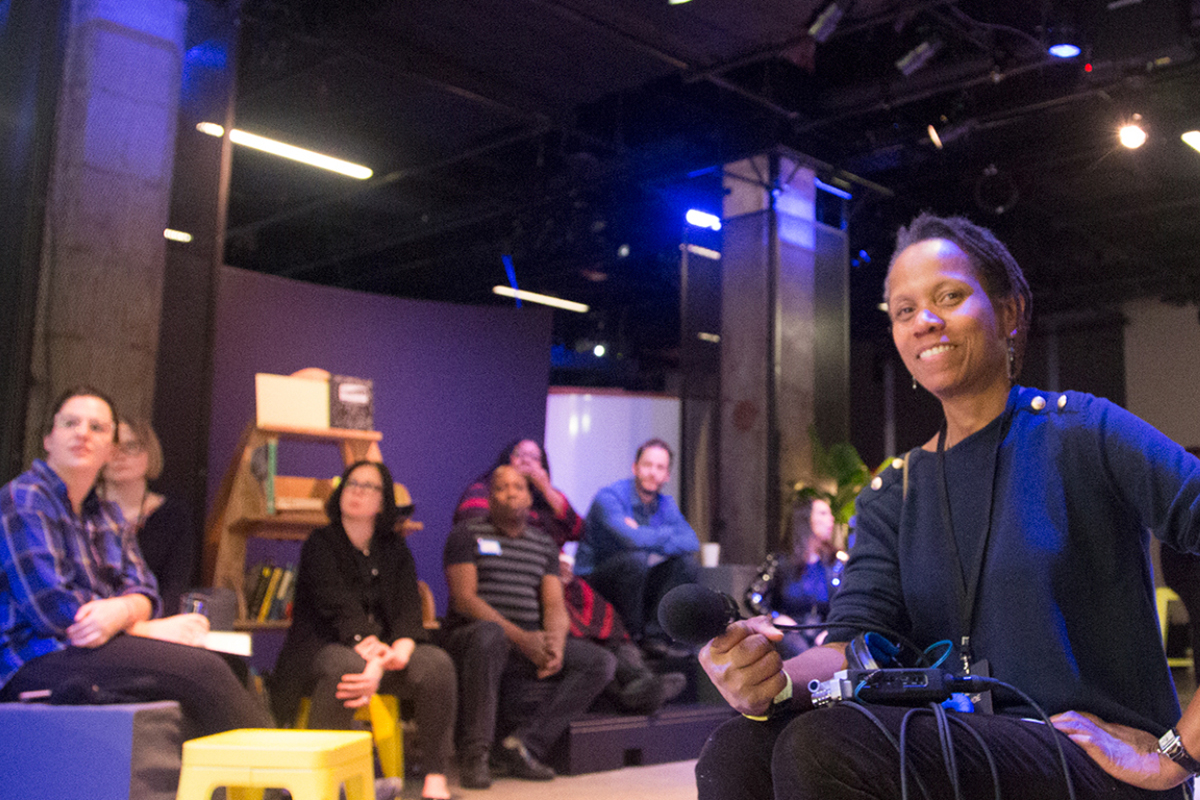Lead Educational Innovation Through TC’s
Technology, Media & Learning Programs
Are you interested in using technologies and media to advance education and improve society? In Teachers College’s Technology, Media and Learning (TML) programs, you’ll work side-by-side with leading researchers, designers, and educators to address learning challenges across schools, communities, and industries. TML offers programs at the intersection of technology, media, design and culture and examines their influence on education and our larger society. Our media, culture, and instructional technology programs provide you with opportunities to design and test new tools, media, and experiences in state-of-the-art research labs, collaborate on cutting-edge projects, and contribute to scholarship that shapes the future of education.
Design socially conscious media. Advance research around educational technology. Build video games that engage students in imaginative ways. Regardless of your aspirations, TC’s learning, technology and media studies graduate programs empower you to create enriching, innovative learning environments that make real change in education and students’ lives.
Choose Your Technology, Media & Learning Degree
Choose from programs encompassing video, computer-based media, digital and non-digital game-based learning, and the role of media in society. A media, learning, and instructional technology degree from TC enables you to pursue a variety of careers in education, the nonprofit sector, or related fields.
Why Study Technology, Media & Learning at Teachers College?

Hands-on lab experiences
Hone your research and inquiry skills and design games, technologies, and learning experiences in one of TC’s respected research centers. Practice integrating technology into your classroom in the Center for Technology and School Change, explore learning and play in our Games Research Lab, or critically engage in media through the lens of its impact on society in MASClab. Whatever your interest, TC provides the settings where you can experiment, observe, design, and learn.

Accomplished faculty
Learn from internationally recognized, widely published experts from multiple disciplines. You’ll have the opportunity to engage in research and design projects alongside faculty who specialize in areas like digital innovation, educational leadership, digital game design, multimodal storytelling, and literacy.

A focus on social justice
Not only is social justice at the center of the TML programs — it’s built into our mission and has been a core principle since Teachers College’s founding in 1880. Our programs equip you with the expertise and abilities you need to create equitable and accessible learning environments.

An educational leader
Teachers College is consistently recognized for its excellence in education and teacher preparation, producing top graduates, internationally respected research, and thought leadership around education and related disciplines. Ranked the #2 Graduate College in Education in the United States by the U.S. News & World Report, TC reflects a deep commitment to leading educational change.
Alumni Stories
Technology, Media & Learning Careers
Our media, learning, and instructional technology programs prepare you to work in education, nonprofits, industry, and beyond. Our alumni work as researchers, professors, and designers in higher education institutions, museums, and community organizations; as K–12 educators and administrators; and as instructional designers and learning technologists in schools and companies. Others have launched technology startups or joined leading organizations such as PBS, Nickelodeon, Google, Amazon, and Sesame Workshop.
Faculty Spotlight
Dr. Jooeun Shim is an Assistant Professor of Teaching in Technology, Media, and Learning, and the Director of the TAMGU Research Lab. Her scholarly interests include the learning sciences, STEM education, and agency and action in learning environments.
Technology, Media and Learning Programs FAQ
At TC, you’ll join a diverse community of researchers, designers, and educators committed to rethinking how technology, media, design, and culture influence and shape learning. From exploring the impact of media and communication on education to designing educational technologies and games, you’ll build the multidisciplinary expertise you need to lead change in your field.
You’ll also benefit from:
- Hands-on learning: From media production to maker spaces, you’ll learn by building, experimenting, and testing.
- Critical perspectives: Our coursework draws on learning sciences, design thinking, media studies, cognitive science, and social inquiry to help you see the bigger picture.
- Real-world practice: Internships, fieldwork, and NYC-based partnerships connect your studies to careers in schools, nonprofits, cultural institutions, and technology industries.
TML welcomes students from any background or field. Students who commonly pursue our programs include:
- Educators and pre-service teachers
- Designers and developers
- Media professionals
- Individuals interested in learning sciences, critical media, or technology for social impact
Both traditional and flexible (e.g., fully online) pathways are available to accommodate different professional needs.
If you’re interested in technology, media and learning but uncertain about your specific path, our faculty and advisors can help you identify the program that best fits your specific interests and situation. Contact us at tml@tc.columbia.edu for more information on our programs and which might work for you.
TML Program News
TML Faculty in the Media
Admissions Information
Application Requirements
- Master of Arts
- Computing in Education (Online)
- Technology Specialist for Teachers NY State Initial: K-12 Ed. Technology Specialist
- Technology Specialist K-12 NY State Initial: K-12 Ed. Technology Specialist
- Technology, Media and Learning
- Master of Education
- Doctor of Education

